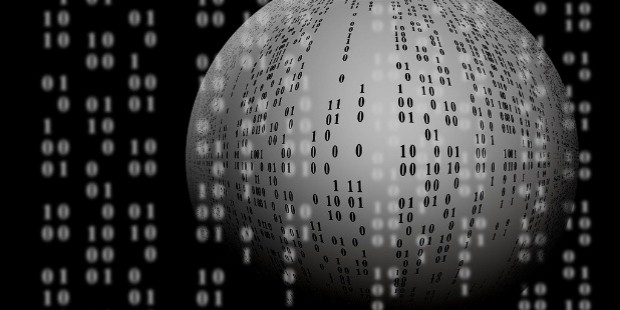Big Data: How Powerful is it and How to Use it

Whether you belong to the IT industry or not, it can be assumed that you have heard about Big Data before. Business leaders across the globe are waking up to the fact that big data could be used to run businesses more efficiently than ever before.
The term Big Data is basically defined as large volume, velocity, and variety of data generated by the systems, processors, devices, organizations, and social media platforms that we use each day. Till 2012, the total amount of data worldwide was over 2.8 Zettabytes. But that was in the past. Since then, there has been an exponential rise in the amount of data generated. Each day our society creates 2.5 Quintillion of data (2,500,000,000,000,000,000).
This data could be structured, semi-structured, as well as unstructured. It could be in the form of numbers, emails, text documents, audio, video, stock data, bank transactions, the data generated by the sensors, and more. Analysts say that at least 30% of the total data in the world can be useful, if processed and analyzed in the right way. However, according to the current estimations, we have been successful in analyzing only 0.5% of this ever-increasing universe of data.
Power of big data
Now that you have a fair idea of what big data is, you must be wondering what one can do with so much data? How can it be made useful? Well, the raw data by itself doesn’t have any value. But when processed accurately, even 0.5% of the world’s data could have tremendous impact on our lives. Let’s see some of the amazing feats of big data in today’s world.
Banking Sector

One of the most important sectors where big data plays a compelling role is banking. Banks give topmost priority to security and big data easily enables them to understand the background of their customers, their banking history, etc. which in turn helps prevent fraudulent transactions. While they have to be secure, banks also strive for customer satisfaction and customers are usually annoyed by frequent payment rejections due to high security filters. Therefore, banks should watch their data with utmost care using the advanced data analysis techniques.
Governance
All types of governing bodies stand to raise the bar of administration considerably by leveraging big data. It could manage public utilities, deal with traffic congestion, and prevent crimes, etc. in much more efficient manner. Governments could use big data to detect problems quickly and react faster. They could also predict and prevent certain problems before they occur.
Education

Big data has the potential to redefine the way education is imparted across the globe. It allows educational institutions to identify academically challenged students, assess student progress, and gauge the standard of teaching by surveys. Also, it can analyze the different ways in which students prefer to study and come up with innovative ways to provide knowledge to them by analyzing the type of books they read or the educational websites they use.
Health Care

Health Care is an industry where trends play a very significant role in detecting the probable cause of a disease or a potential epidemic. Big data easily helps you study these trends in symptoms, patients’ reactions to treatments, by studying patient records and treatment plans. This would empower the researchers to draw important conclusions and devise new ways of treatment. They could also prevent the spread of epidemics and be better prepared in the wake of an epidemic.
Businesses and Industries

Increasing number of businesses, whether they are established business houses or startups, are relying heavily on big data to understand their customers better and provide them with best possible solutions for their problems. Based on the social media usage, time spent on e-commerce sites, and through various other ways, these businesses gain access to information such as the problems faced by customers, things they are talking about, predict things they might be looking for. Such information could be interpreted to some extent by a person’s age, gender, profession, etc.
Big data can affect almost every industry namely Telecommunication, E-commerce, Service and Hospitality industries, gain deep valuable insights.
Working with big data

Before you start analyzing the big data, you need to make sure they are stored at a secure location in an optimum way. For this, most people have started using Hadoop and MapReduce. Once the storage is taken care of, you can move to the big job of analyzing your data. Here are the 4 simple steps to perform data analysis:
- Define your problem - If you want your analysis to be fruitful, it is important you have a vivid picture of the objective of analysis or the problem your analysis is expected to solve.
- Collect the data or sample - Access the data from the database. Make sure your data is as relevant as possible; for example, select the correct department, the correct number of samples, and the time period. If you want to know the recent trends in the business, you need data only from the last two years. Any information before that period is waste and will only add to the complexity of your analysis.
- Clean the data – Raw data may not always be accurate. Sometimes your customers could enter wrong information so as to not share their correct details. For example, in the field having numbers, you see letters of the alphabet. Perform necessary checks to minimize such discrepancies to give you accurate results.
- Data modeling - This is where the Data Scientist’s core contribution comes from. Data modeling implies making sense of the data; you find patters and record trends. You convert raw data into meaningful information. You draw conclusions regarding the existing problems, suggest possible solutions, and recommendations. It is undoubtedly the more crucial stage in data analysis.
You could also make use of various software tools to perform advanced analysis such as Predictive Analytics, Data mining, Text Analytics, and Statistical Analytics.
Big Data gives you the power to make informed decisions for your business, reduce costs, minimize risks, and predict customer behaviors as well. Big data is the future!











